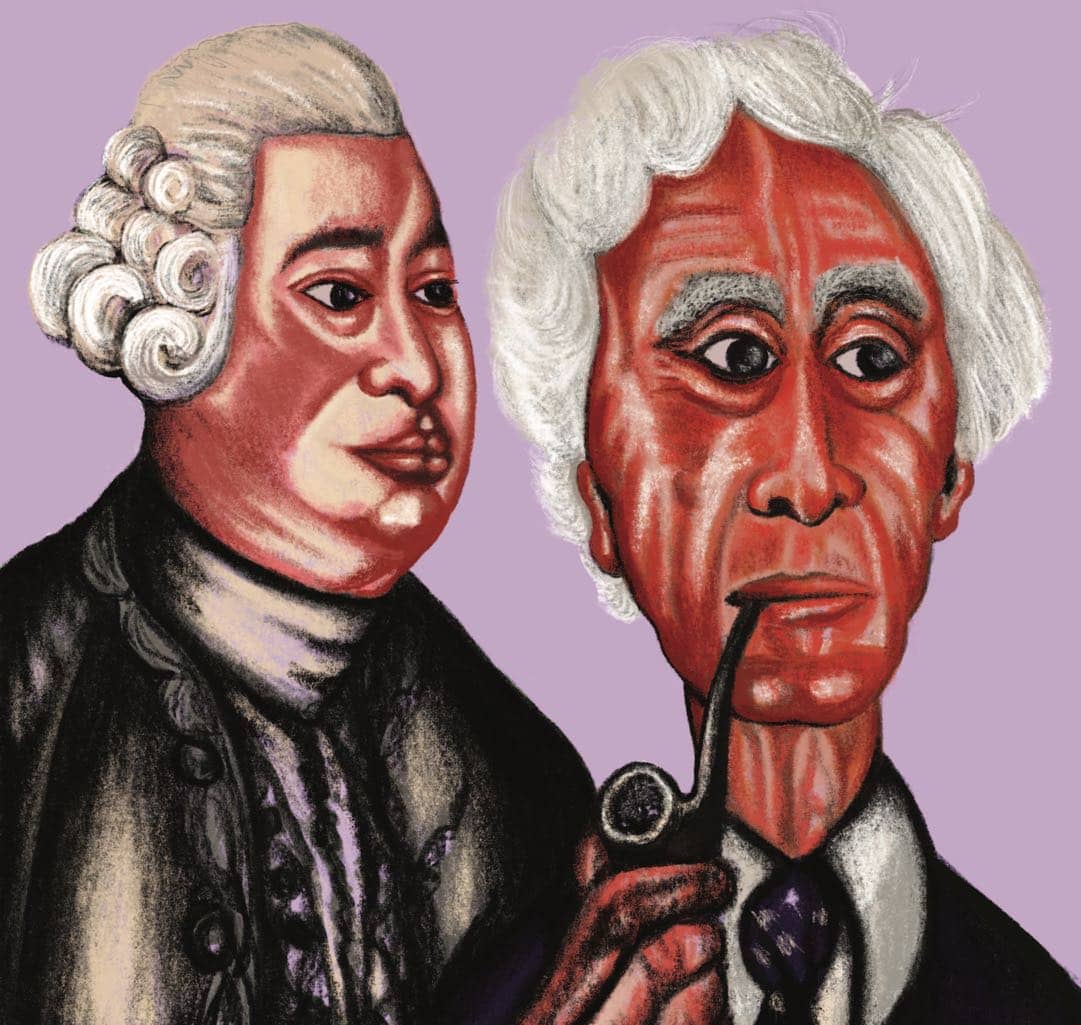
The branch of moral philosophy with the fancy-sounding title ‘meta-ethics’ is most fundamentally concerned with questions of meaning and reality in ethics. To cut a very long story short, there are basically two types of meta-ethicists: those who believe that there are objective moral facts or, at least, that there are objective means of establishing that an action is right or wrong, and those who don’t. The latter believe instead that morality, however it may be dressed up, is actually just a matter of taste, a basic matter of approval or disapproval. Not surprisingly, the first group of philosophers are known as moral realists, the latter as moral subjectivists.
Humean Morality
Most famous amongst moral subjectivists is the great Scottish empiricist philosopher David Hume (1711-1776). Hume argues that we receive no sensory impressions of the goodness or badness, rightness or wrongness of a person, action, or event. In other words, there are no moral properties to be observed alongside the natural properties we observe. When I witness a stabbing, for example, I perceive the knife going in, the blood flowing, and the cries of the victim, but I do not perceive the badness of the act. Rather, I interpret the act as bad. The false supposition that goodness and badness are natural properties of persons, actions, and events has come to be known as the naturalistic fallacy.
Diese Geschichte stammt aus der April/May 2021-Ausgabe von Philosophy Now.
Starten Sie Ihre 7-tägige kostenlose Testversion von Magzter GOLD, um auf Tausende kuratierte Premium-Storys sowie über 8.000 Zeitschriften und Zeitungen zuzugreifen.
Bereits Abonnent ? Anmelden
Diese Geschichte stammt aus der April/May 2021-Ausgabe von Philosophy Now.
Starten Sie Ihre 7-tägige kostenlose Testversion von Magzter GOLD, um auf Tausende kuratierte Premium-Storys sowie über 8.000 Zeitschriften und Zeitungen zuzugreifen.
Bereits Abonnent? Anmelden

The Two Dennises
Hannah Mortimer observes a close encounter of the same kind.

Heraclitus (c.500 BC)
Harry Keith lets flow a stream of ideas about permanence and change.

Does the Cosmos Have a Purpose?
Raymond Tallis argues intently against universal intention.

Is Driving Fossil-Fuelled Cars Immoral?
Rufus Duits asks when we can justify driving our carbon contributors.

Abelard & Carneades Yes & No
Frank Breslin says 'yes and no' to presenting both sides of an argument.

Frankl & Sartre in Search of Meaning
Georgia Arkell compares logotherapy and atheistic existentialism.

Luce Irigaray
Luce Irigaray, now ninety-two years old, was, among many other things, one of the most impactful feminists of the 1970s liberation movements - before she was marginalised, then ostracised, from the francophone intellectual sphere.

Significance
Ruben David Azevedo tells us why, in a limitless universe, we’re not insignificant.

The Present Is Not All There Is To Happiness
Rob Glacier says don’t just live in the now.

Philosophers Exploring The Good Life
Jim Mepham quests with philosophers to discover what makes a life good.